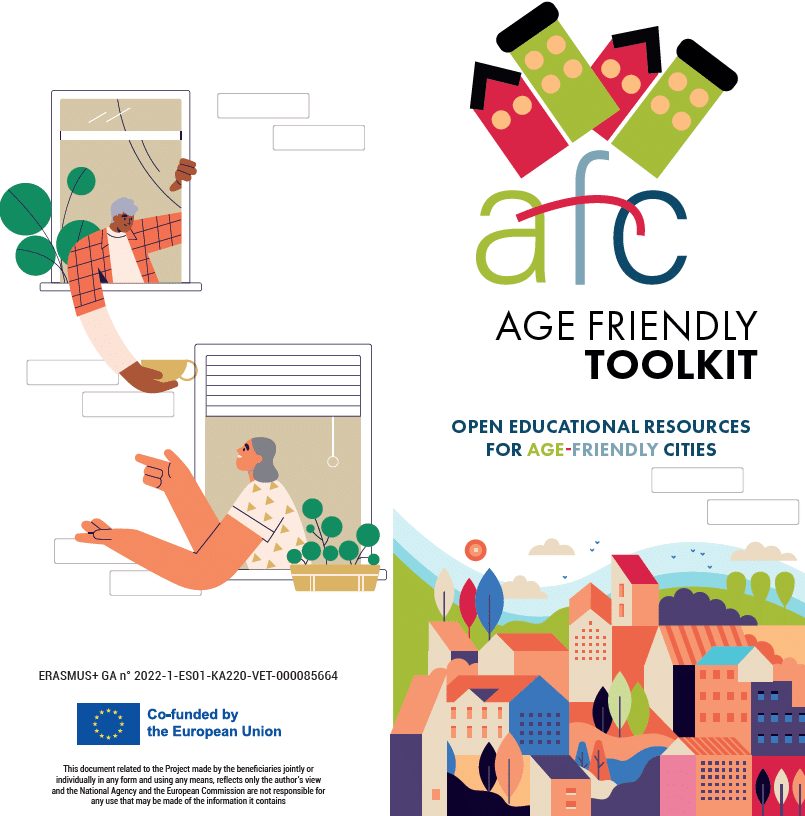The WHO and UN Decade of Healthy Ageing provide frameworks for creating age-friendly environments, but implementation occurs at the local level. To bridge the gap between theory and practice, the AFC toolkit project steps in and addresses the challenge of connecting these frameworks to real-world implementation thanks to an online training for a new professional role focused on developing and implementing age-friendly environments. This approach helps cities and regions overcome common obstacles by breaking down the process into manageable steps, offering practical examples and case studies.
The project proposes training for a “Reference Professional for the Development of Age-Friendly Cities and Communities.” This role serves as a bridge between various stakeholders, including policymakers, civil servants, social workers, healthcare professionals, and housing developers. The training focuses on implementation rather than framework, aiming to produce qualified technicians capable of designing, organizing, implementing, and evaluating interventions while fostering synergies across departments, organizations, and businesses.
The AFC Toolkit project started in December 2022 as part of a European project financed by the Erasmus+ programme. A consortium of 6 partners worked together with external professionals and citizens to release the training, so we can proudly say that the training is a joint effort of over 200 citizens and professionals around the EU.
In January 2025 the training was tested in 4 European Countries and at EU level, with a working group in Madrid (Spain), one in Gouda (the Netherlands), one in Modena (Italy) and one in Aarhus (Denmark), and then in Brussels, at AGE Platform Europe, where AGE Secretariat worked with its dedicated task force on age-friendly environments.
The training is available online on pc or smartphone, in English, Spanish, Danish, Italian and Dutch, and It takes approximately 40 hours to complete, including to read all the additional materials. It is a self-paced training, organised in 5 modules, freely available here.

AGE at the IFA Global Café
A presentation of the training was offered by AGE at the IFA Global Café, available here. Ilenia Gheno, AGE Project Manager introduced the training to over 100 participants from all over the world, connected by the International Federation of Ageing.
It’s time to feel good about ageing and to shape the environment we want to grow older.
The global population is ageing rapidly, and age-friendly environments are no longer a nice-to-have, but a necessity for ensuring the well-being and participation of older adults and of people of all ages as they grow older.
Here’s why this is crucial
While celebrating increased life expectancy, demographic change requires cultivating novel professional roles and skill sets.
The AGE-FRIENDLY TOOLKIT project meets this demand by offering:
- A training curriculum for a brand-new professional role: the “Reference Professional for Inclusive Ageing in Age-Friendly Cities.”
- A self-paced online training course to empower individuals with the skills to drive change.
What’s in it for you? These resources are:




Get it start now!
Download these free resources:
- Booklet
Training Curriculum for a new professional profile for Inclusive Ageing in Age-Friendly Cities
>Download now - Online Available courses
Online self-paced training for a new professional profile for Inclusive Ageing in Age-Friendly Cities
> Download now
Together, let’s shape a future where cities are truly age-friendly!
Contact








